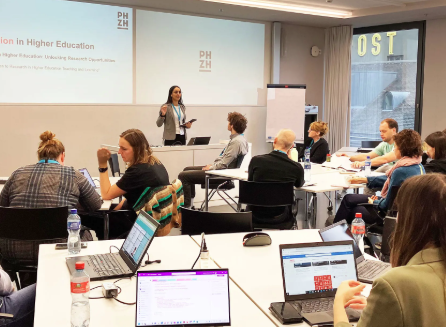Research is a vital component of higher education that enriches the academic experience and contributes to advancements across fields. For students, engaging in research offers a chance to explore complex topics, develop critical thinking skills, and gain hands-on experience that supports both academic and career goals. Institutions around the world provide a wide range of research opportunities, making it an essential aspect of higher learning. Here’s how students can benefit from and access research opportunities in college and university settings.
1. Undergraduate Research Programs
Many colleges offer formal research programs for undergraduates, allowing students to work alongside faculty on active research projects. These programs may be part of summer research initiatives, honors theses, or independent study opportunities.
2. Research Assistant Positions
Students can apply for roles as research assistants, helping with tasks like data collection, literature reviews, or lab work. These positions often provide valuable mentorship and skill-building experiences.
3. Faculty-Led Research Projects
Professors frequently welcome student participation in their research. Reaching out to faculty whose interests align with your own can lead to collaborative opportunities and potential publication or conference presentation experience.
4. Interdisciplinary Research Centers
Universities often house research centers that focus on topics like public health, sustainability, artificial intelligence, or global studies. These centers encourage collaboration across disciplines and often welcome student involvement.
5. Institutional Support and Funding
Many institutions offer grants, scholarships, or stipends to support student research. Offices of undergraduate research, academic departments, or honors programs can guide students through the application process.
6. Study Abroad and International Research
Some study abroad programs incorporate research components, giving students the opportunity to explore global issues or collaborate with international peers and faculty.
7. Research in the Humanities and Social Sciences
Research isn’t limited to the sciences. Students in literature, history, psychology, or sociology can also engage in research through archival work, interviews, surveys, or theoretical analysis.
8. Capstone and Thesis Projects
Many degree programs culminate in a research-based capstone or thesis. These projects allow students to delve deeply into a topic of their choice, applying what they’ve learned throughout their coursework.
9. Presentation and Publication Opportunities
Students are often encouraged to present their findings at campus research days, academic conferences, or publish in undergraduate journals. These platforms help build confidence and professional skills.
10. Career and Graduate School Preparation
Research experience demonstrates initiative, analytical ability, and subject expertise—qualities valued by employers and graduate schools alike. Participating in research can clarify academic interests and open doors to future opportunities.
Conclusion
Research opportunities in higher learning are rich and varied, offering students the chance to expand their knowledge and contribute to meaningful discoveries. By engaging with research, students not only enhance their education but also prepare themselves for success in academic, professional, and real-world settings.


